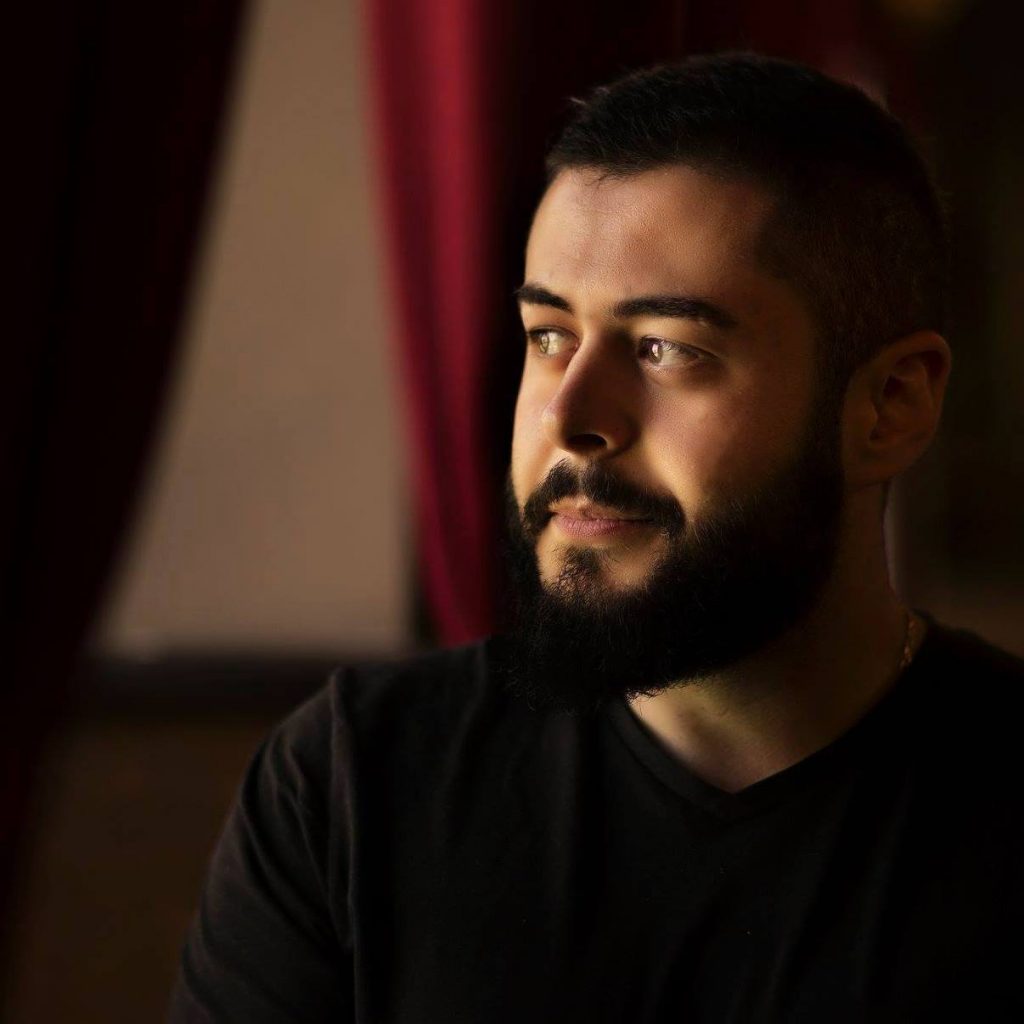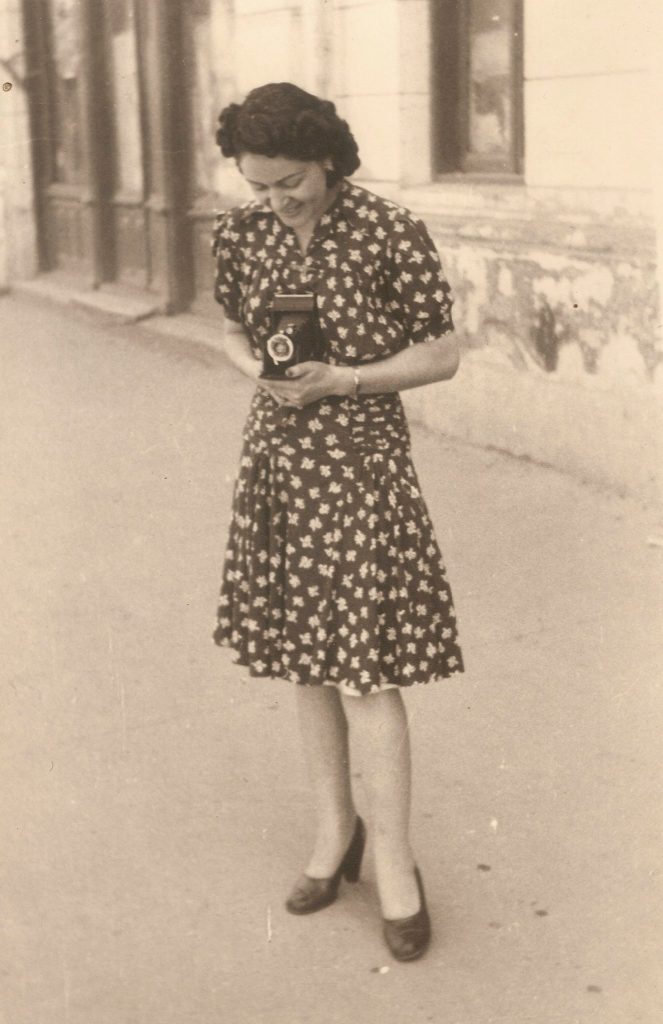When technology and art coexist, great people emerge
Passionate about graphs and pixels, Horațiu has a seemingly strange job – he’s all into finding errors and glitches. Of course, we’re talking about coding faults related to the applications that he tests every day at IT Teams. The testing process is a vital step for the applications developed by the team to meet the … When technology and art coexist, great people emerge
Passionate about graphs and pixels, Horațiu has a seemingly strange job – he’s all into finding errors and glitches. Of course, we’re talking about coding faults related to the applications that he tests every day at IT Teams. The testing process is a vital step for the applications developed by the team to meet the quality requirements imposed by the clients. Confident in establishing a strong relationship between developers and testers, Horațiu puts great value on teamwork and the smiles on people’s faces, both in his professional and private life.
What’s your history with IT Teams? What captured your attention and made you stay here?
I had been working at IBM for a few years, being glad that I was part of such an important company, but I realized that I wasn’t happy with my situation. There were too many rules and procedures imposed and the entire context made me feel quite “disposable”. I was thinking about a change, so a friend suggested a job at IT Teams that seemed appealing to me. The natural course took place, I participated in a first interview with the HR manager, and I really liked the approach and the openness. A few meetings at the management level followed, which convinced me that I was in the right place.
I’ve been in IT Teams for over three years and I enjoy a lot what I do and the people I work with. I have many opportunities to work extra on various projects, if I have time and I wish to, and if I want to earn more to finance my personal projects. It’s a very advantageous setup, I can be allocated extra time for various projects in order to occupy my time and energy and gain more money without the company’s discomfort of finding an employee for a part-time job.

A contest winning photo. 
Just me. 
My grandma was a photographer also. 
A picture that I like. 
Picture I like the most.
I live in Brașov and work remotely full time. Initially, the company wanted to open an office here, with 4-5 employees, but in the context of the pandemic this plan was abandoned and we remained remote. Two years later, I realize now that it would be difficult for me to return to the old way of working, therefore the possibility of working from a distance suits me well. I get up in the morning and go to the gym, and have a flexible schedule and it means the world to me.
IT Teams was the only company I’ve worked with that made me feel that it cared about its employees. I don’t feel neglected or just like another number anymore, I know now that I’ve found a place where I feel appreciated.
What about your professional development in recent years? What were the main things you learned in IT Teams?
I left IBM with a solid technical background, but I didn’t have the necessary skills to be a tester although I wanted to be part of this industry. So, my first project here involved testing processes which helped me a lot especially because I had the opportunity to learn many new tools. At that time, I was already familiar with the concept of automated testing, it was something I wanted to learn since I was at IBM. I’ve evolved a lot in IT Teams, both in what concerns automated testing and mobile software development and testing.
I do not put much emphasis on formal certifications. Yes, the basics are much needed, but I’m more interested in the thought process behind everything and the ability to work in a team. You can become a good professional as a lone wolf, but you can’t go too far when you isolate yourself. I think that this field has evolved a lot lately, so the amount of information in a project can become so complex that it’s difficult to own and manage by a single individual. The whole picture must be created together, each member of the team brings his own tiny pixels so that the overall image can be created in a relevant way.
What does the tester-developer relationship look like?
The tester-developer relationship is tense and based on the 6:9 ratio. Analyzing the same problem, testers see 6, and developers 9. Most of the time, we have different perspectives on the same application due to our backgrounds: technical versus functional. It’s important to understand, however, that the purpose of these discussions is not winning the argument but reaching a common denominator, which is ultimately a quality product.
The projects are unique and the disputes are constructive. Sometimes we need a second opinion and this is where the product owner steps in. Luckily, here at IT Teams we enjoy a balanced environment, but here’s a tip for testers: read books on psychology and negotiation, they really help when it comes to building soft skills.
What do you think are the main qualities that a good tester should own and what kind of projects do you like most?
Definitely, curiosity is really important, as well as persistence. Don’t limit yourself because that will prevent you from learning something new, so, be open to different points of view. I usually try to fill my clients’ shoes to find the most relevant testing perspectives for an application and see how to approach even the most hidden flaws.
If I were to make a top, a good tester should look like this:
- Knows how to listen and understands the client’s need
- Models their thinking and way of seeing the application to look for errors in areas that will most impact the client’s activity
- Super curious and sharp
- Doesn’t trust anything until he checks several times
- How do you treat challenging projects? What sort of projects satisfy you?
I enjoy challenges, so these kinds of projects will always be close to my heart. But sometimes challenging projects become difficult, and most of the time it’s because of the people, not technology. I met project owners who did not succeed to manage their team and their whole activity. This, in time, lead to frequent changes of direction and strategy that made me feel like I was working in vain and not achieving anything.
I currently work at a medical platform for both doctors and patients where we combine the testing processes since we have a web version and a mobile one. I have a great team on my side and I feel like the learning curve is never-ending. This is the first time I have implemented testing from scratch through my own ways of working and tools and the results are visible. I can definitely say that this kind of project brings me a higher level of satisfaction at the end of the day.
How cool is working in the IT industry? What do your friends think?
Most of my friends work in other fields, but they all have a very good opinion. Of course, many stereotypes trigger me, but nothing cannot be solved with an honest discussion. To name a few, people generally think that IT employees earn a lot of money and do not have a social life, they are introverted and not emotionally charged because they do not work with real people, etc. However, it’s an industry that many people want to be part of and I often receive questions about how I ended up here.
Well then, how did you end up working in the tech field?
I graduated college with a degree in product and environmental design, a combination of mechanics and chemistry, but I was passionate about technology as a child. At the age of 11, I took 4th place, county level, in a programming competition in Borland Pascal. Later I turned to an economic field because it seemed more interesting, but I soon found out that clearly, it wasn’t a good fit for me. I wasn’t too fascinated by engineering either. After college, I worked for only 3 months as an engineer, then moved on to IT, dealing with service operations at the local equipment manufacturer Allview. Later, being employed at Waters Romania, a company that develops equipment and instruments for the medical industry, I had the opportunity to make the transition to software, enter the world of application testing, learn a lot about this field and even have my own project. After Waters I went to IBM, attracted by the name of the company. To be honest, that’s where I really discovered what technology means. Unfortunately, for me, IBM seemed vast, but a rigid corporation and the work environment wasn’t stimulating me at all. That’s why, at the recommendation of a friend who works in tech, I agreed to go to an interview at IT Teams, where I have been for over three years. I think it was the best professional switch I’ve ever made.
What about your spare time? How do you enjoy spending it?
I’m really passionate about photography so I’m involved in multiple projects, including a studio (Haș Photography), in which I co-opted other enthusiasts. I spend a lot of time with my camera and I invest heavily in professional equipment. It’s a hobby inherited from the family – my grandmother was also a photographer, opening the first color studio in Buzău, the city where I grew up. I’m passionate about portraits because I capture emotion in color. I also have some photos awarded at various contests, so I definitely would like to participate in some more in the near future. Besides photography, I enjoy reading, we have a real family reading contest. My favorite titles are The Chimpanzee Paradox by Steve Peters, Words That Change Minds by Shelle Rose Charvet, and The Wisdom of Psychopaths by Kevin Dutton. I also like fiction and books that help me develop as a person.




